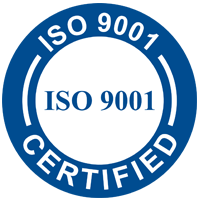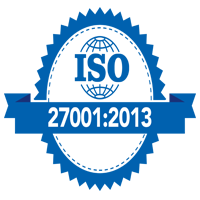Business Intelligence is evolving and ensuring faster decision-making across industries. This helps people make more informed decisions and the accuracy of decisions can be verified with data and trends. And with the healthcare industry rapidly growing to reach remote locations and enhance healthcare, the role of Business intelligence can’t be neglected. Brilliant Visualizations and data warehouses ensure the decisions taken are well-informed and take into account the entire patient’s history. This can help all stakeholders make informed decisions and reduce risks.
From Understanding Records to making Operational Decisions, each stage of healthcare is now more data-driven, and people are getting quicker health support even using their smartphones. Mobile Applications for healthcare have made it easier to secure healthcare resources with data insights and integrated business intelligence to make informed decisions. This makes BI in healthcare a crucial resource for all decision-makers and stakeholders. Let’s unravel how Business Intelligence can be implemented across the healthcare industry to improve patient dealing
Healthcare BI Strategies
1. Data Integration: The ability to integrate data from multiple sources, such as electronic health records (EHRs), patient feedback systems, and marketing platforms, will be crucial to the project’s success. This comprehensive data pool forms the foundation for effective BI.
2. Define Key Performance Indicators (KPIs): Determine and define key performance indicators (KPIs) in collaboration with marketing stakeholders that align with the marketing goals. These KPIs could include patient acquisition rates, campaign conversion rates, and return on investment for marketing initiatives.
3. Invest in User-Friendly BI Tools: In order to ensure that your marketing team will be able to easily adopt BI tools that have a user-friendly interface, intuitive interfaces, and interactive dashboards make it easier for marketing managers to derive actionable insights without extensive technical training.
4. Training and Skill Development: Training and skills development opportunities must be provided for marketing teams in order to enhance the capabilities that they have when it comes to BI. It ensures marketing managers can navigate BI tools effectively and leverage their full potential.
5. Collaboration Across Departments: Encourage collaboration between marketing, IT, and other relevant departments to ensure BI initiatives align with organizational goals. The cross-functional teams will be able to work together to identify areas where companies can make improvements and implement innovation in order to address this problem.
When it comes to drafting a BI strategy, there is no one-size-fits-all. You have to ensure you understand your business requirements and devise a plan that perfectly fits your needs. But are you sure BI is really beneficial in healthcare? Let’s understand how BI can be beneficial in healthcare
Benefits of BI in Healthcare
1. Improved Patient Care and Outcomes: BI tools enable healthcare providers to analyze patient data comprehensively. It includes treatment histories, medication adherence, and other relevant information. By identifying patterns and trends, healthcare professionals can tailor treatment plans to individual patients and improve outcomes.
2. Operational Efficiency: BI streamlines operational processes by providing insights into resource utilization, workflow efficiency, and staff performance. This information allows healthcare organizations to optimize operations, reduce costs, and allocate resources more effectively.
3. Enhanced Financial Performance: BI helps healthcare organizations analyze financial data, track revenue cycles, and identify opportunities for cost reduction. It ensures financial stability, allowing organizations to reinvest in technology, staff training, and patient care.
4. Real-Time Data Analysis: BI provides real-time data analytics, allowing healthcare professionals and marketing managers to respond swiftly to emerging trends or issues. This agility is crucial in a rapidly changing healthcare landscape.
5. Enhanced Patient Experience: By understanding patient preferences, feedback, and satisfaction levels through BI, healthcare organizations can tailor their services to meet patient expectations. It leads to a better overall patient experience and increases patient loyalty.
BI in healthcare has always been a great choice as it helps not just the doctors but also the entire staff. It helps to keep track of a patient’s history and fastens decision-making processes.
Final Words
Business Intelligence has become an indispensable tool for healthcare organizations looking to navigate industrial complexities. BI helps marketing managers understand patient demographics, market trends, and marketing campaign effectiveness. By analyzing data, healthcare marketing teams can improve patient engagement, optimize marketing strategies, and contribute to the organization’s success.
We at Canopus Infosystems understand the importance of leveraging business intelligence to make informed decisions. Our experts understand the importance of precision and quick decision-making in healthcare and how to implement BI dashboards that can help healthcare professionals make more informed decisions.
3 mins read

















